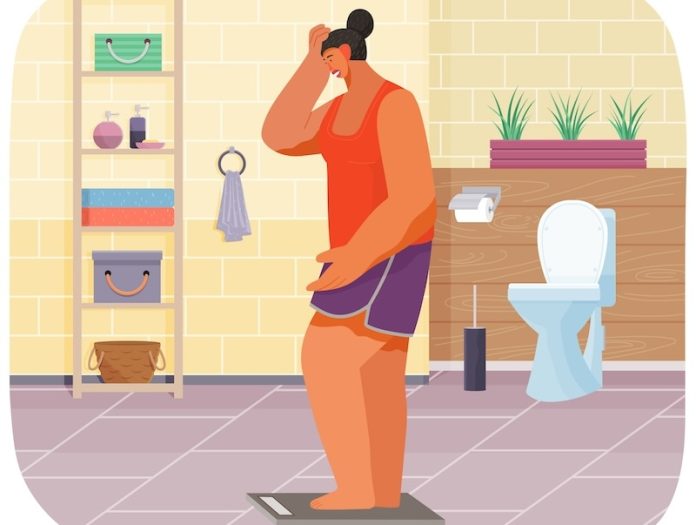
Scientists from Kobe University have found that stroke survivors who are slightly overweight tend to have fewer disabilities after their recovery.
This discovery builds on the “obesity paradox,” a concept that, while surprising, has been observed before: sometimes, being a bit heavier can be protective, especially for certain health conditions.
This research suggests that the best advice on weight and recovery might need to consider what is “normal” weight for specific populations, like people in Japan.
The obesity paradox is an idea that’s intrigued researchers for years. It describes how, among people who suffer from strokes, those who are a little overweight often have better outcomes than those with an average or lower weight.
These patients tend to have a lower risk of death and are less likely to experience repeated strokes. They also tend to be readmitted to the hospital less frequently.
Now that survival rates for stroke patients have improved, researchers are looking more closely at what life is like after a stroke, especially how weight may affect a person’s ability to function and live independently again.
This study’s lead scientist, Dr. Izawa Kazuhiro, noticed a pattern in his clinical practice. He often saw that thinner patients seemed to have more challenges in regaining their independence and physical abilities after a stroke, while patients who were slightly heavier seemed to recover better.
This observation led him to investigate whether there’s a real link between body size and how well patients function after leaving the hospital.
Dr. Izawa, along with his colleague Dr. Kanejima Yuji, looked at health data from a large database that included over half a million stroke patients treated in hospitals across Japan.
This database provides information on people’s diagnoses and treatments while keeping their identities private.
The team analyzed various factors that could affect recovery outcomes, including the patients’ body mass index (BMI), which measures weight in relation to height. They also considered other details such as the patients’ age, gender, and level of disability at the time they entered the hospital.
Their findings, published in a journal on stroke rehabilitation, showed a clear trend: patients with a BMI between 22.1 and 27.5 had the lowest risk of being discharged with severe disabilities, with the ideal BMI found to be 24.7.
In Japan, a BMI between 23 and 25 is considered slightly overweight. So, this study suggests that a little extra weight may actually help with stroke recovery by reducing the chances of serious disability.
Dr. Kanejima, the study’s lead author, offered a possible explanation. He noted that the average age in this study was 77, and as people age, they tend to lose weight more easily. For elderly stroke patients, a bit of “extra weight” could help them cope with the demands of recovery.
Stroke and hospital stays can take a toll on the body, especially on nutrition. A person with some reserves may be better able to handle this challenge, which could help protect their nervous system and aid in recovery.
Interestingly, a similar study in the United States also found that a slightly higher BMI helped with recovery, but the ideal BMI for Americans was around 30, which is notably higher than the Japanese standard.
Dr. Kanejima explained that these differences are likely due to physical and lifestyle differences between populations. People in Asia often have a slimmer build compared to those in the U.S., so a lower BMI is “normal” and healthier for them.
This difference highlights the need to adapt health recommendations based on population-specific characteristics, such as average body size and health standards.
The study’s findings also provide some practical advice. Dr. Izawa pointed out that for older adults, weight loss might actually be harmful rather than beneficial. For health professionals, it’s a reminder to carefully monitor stroke patients’ weight, especially during hospital stays.
Losing weight rapidly could lead to more severe disabilities, making it important for doctors and nurses to prevent excessive weight loss in patients who are already vulnerable.
Looking ahead, the Kobe University research team plans to investigate further how changes in body weight during a hospital stay might influence stroke recovery.
By understanding these mechanisms, they hope to provide more detailed guidance for both doctors and patients on how to manage weight in a way that promotes the best possible outcomes after a stroke.
If you care about stroke, please read studies that diets high in flavonoids could help reduce stroke risk, and MIND diet could slow down cognitive decline after stroke.
For more health information, please see recent studies about antioxidants that could help reduce the risk of dementia, and tea and coffee may help lower your risk of stroke, dementia.
The research findings can be found in Topics in Stroke Rehabilitation.
Copyright © 2024 Knowridge Science Report. All rights reserved.



